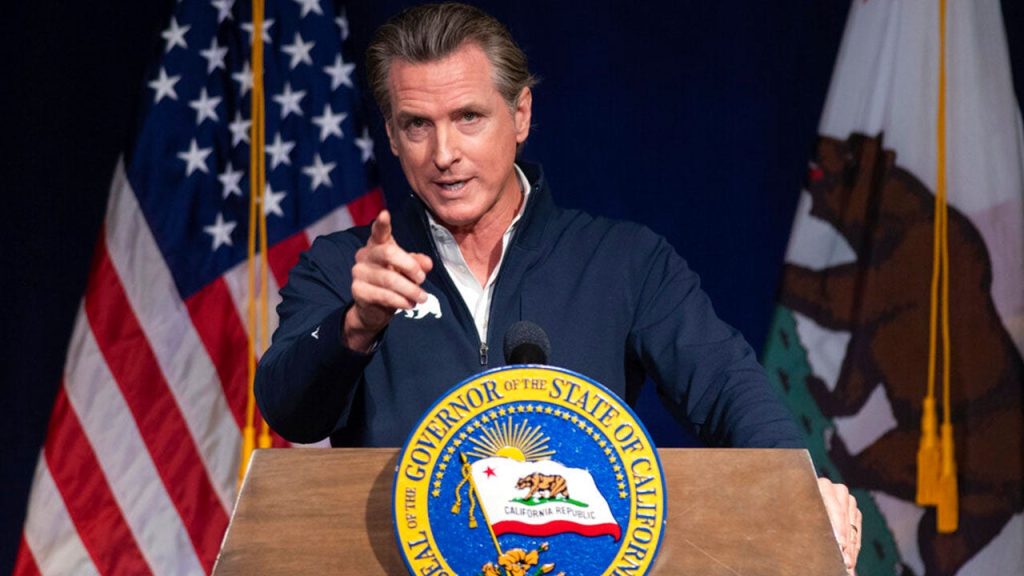California Democratic leaders have reached an agreement on a plan to reduce the state’s $17.3 billion shortfall through a combination of spending cuts, delays, and deferrals. Governor Newsom, previously facing unprecedented surplus budgets, is now dealing with multibillion-dollar deficits due to the pandemic. Last year, a $32 billion deficit was avoided with smaller cuts, borrowing, and pushing expenses to future years. However, this year’s deficit could be as large as $73 billion, though Newsom has stated it is $37.9 billion. The state’s revenues are expected to exceed $291 billion, making the deficit easier to manage.
To address the deficit, in January, Newsom proposed tapping reserves and cutting spending, with half of the cuts aimed at housing and climate programs. Democratic leaders in both houses reached an agreement on a plan that includes cutting $3.6 billion in funding primarily from schools, welfare, and climate programs, as well as delaying and deferring $5.2 billion in spending on various programs. Lawmakers passed legislation to increase the state’s tax on managed care health plans, generating $3.8 billion. Newsom’s major spending commitments, such as free health insurance for low-income adults, remain untouched. Lawmakers are expected to vote on the budget plan next week, with more negotiations to come before the June deadline.
Newsom commended their responsible fiscal stewardship over the years, including record budget reserves of nearly $38 billion. He looks forward to finalizing the budget and continuing to build the future of California. Senate President pro Tempore Mike McGuire and Assembly Speaker Robert Rivas called the agreement a critical first step towards shrinking the state’s shortfall. However, Republican lawmakers criticized the plan, accusing Democratic leaders of shutting them out of the conversation. California law mandates a balanced budget, unlike the federal government, with Newsom set to present his revised budget proposal in May and lawmakers having until June 15 to pass the budget.
The agreement reached between California Democratic leaders includes a plan to reduce the state’s $17.3 billion shortfall through a combination of spending cuts, delays, and deferrals. Governor Newsom, previously facing unprecedented surplus budgets, is now dealing with multibillion-dollar deficits due to the pandemic. Last year, a $32 billion deficit was avoided with smaller cuts, borrowing, and pushing expenses to future years. However, this year’s deficit could be as large as $73 billion, though Newsom has stated it is $37.9 billion. The state’s revenues are expected to exceed $291 billion, making the deficit easier to manage.
To address the deficit, in January, Newsom proposed tapping reserves and cutting spending, with half of the cuts aimed at housing and climate programs. Democratic leaders in both houses reached an agreement on a plan that includes cutting $3.6 billion in funding primarily from schools, welfare, and climate programs, as well as delaying and deferring $5.2 billion in spending on various programs. Lawmakers passed legislation to increase the state’s tax on managed care health plans, generating $3.8 billion. Newsom’s major spending commitments, such as free health insurance for low-income adults, remain untouched. Lawmakers are expected to vote on the budget plan next week, with more negotiations to come before the June deadline.
Newsom commended their responsible fiscal stewardship over the years, including record budget reserves of nearly $38 billion. He looks forward to finalizing the budget and continuing to build the future of California. Senate President pro Tempore Mike McGuire and Assembly Speaker Robert Rivas called the agreement a critical first step towards shrinking the state’s shortfall. However, Republican lawmakers criticized the plan, accusing Democratic leaders of shutting them out of the conversation. California law mandates a balanced budget, unlike the federal government, with Newsom set to present his revised budget proposal in May and lawmakers having until June 15 to pass the budget.


